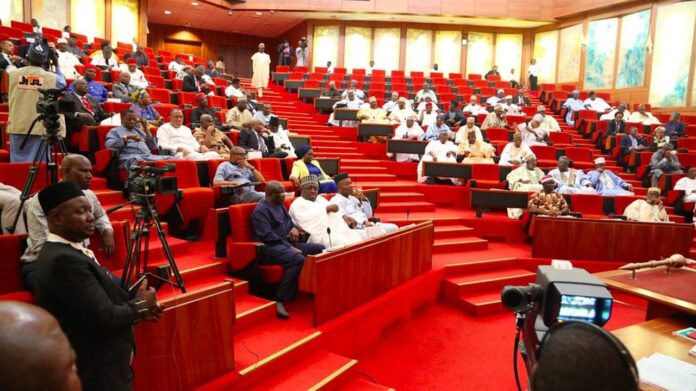Fiscal Responsibility Act 2007, aimed at checking corruption
By Anselm Okolo
Enacted fourteen years ago, the Fiscal Responsibility Act 2007, was at its enactment a pioneering piece of legislation aimed at checking corruption and enthroning a prudent regime of public finance management at the federal level. Following the enactment of the law, the Fiscal Responsibility Commission (FRC) was set up to implement the provisions of the law and lead other consequential actions for the enforcement of the law.
This raises a fundamental poser. Did the enabling legislation give sufficient powers to the FRC to enthrone prudence and accountability at the federal level? The FRC has been likened to a sprinter set out on a dash with its hands tied behind the back. These past years, it had been a tale of attempts by dedicated workmen and experts in the fiscal field, struggling to block leakages and waste in public finance management, enforcing accountability and promoting transparency. But a workman is entitled to the tools necessary to deliver stated results. At the point of enactment of the FRA, the FRC was not given the necessary teeth to bite and enforce its provisions. So, it ended up as a Commission with the finest of power in defining what it is expected to do but lacking in the powers to enforce provisions and decisions needed to achieve the overarching goals.
____________________________________________________________________________________________
RELATED ARTICLES:
NPA tackling corruption on port-access road, says Bello-koko
Buhari deserves credit for diminishing corruption in public service – Presidency
___________________________________________________________________________________________________
Rightly, this must have prompted the decision of the Senate to begin the process of the repeal of FRA 2007 and re-enactment of a new one. The need for a wholesale repeal and re-enactment of the FRA 2007 have been eloquently canvassed and defended at a public hearing conducted by the Senate Committee on Finance on July 6, 2021, at which raisons d’etre were laid bare.
A review of the performance of the FRC so far, show that as it is today, the FRC is at best a toothless bulldog. While the FRA 2007 confers on the FRC to power to investigate violations of the provisions of the Act, it falls short when it comes to the power to prosecute offenders. This is because the Act does not confer on it the prosecutorial powers to advance its findings in the courts, thus enabling it to bring before the law, infringements and culprits. In the real sense of the arguments in support of the conferment of prosecutorial powers on the FRC, there is nothing totally new or novel about the practice in our financial crimes and misconduct environment. There is the argument though that the prosecutorial powers if so conferred as proposed already in the amendment bill before the Senate, would encroach or duplicate the functions of the Office of the Attorney General. But this is not true. Section 2(3) of the proposed Amendment Bill provides that “every prosecution of an offender under this Act by the Commission or its appointed Legal Practitioner shall be deemed to have been done with the consent of the Attorney General of the Federation”. However, the extant provisions just require the FRC to investigate and hand over its findings to the Attorney General for further actions.
For very good reasons, the conferment of prosecutorial powers on the FRC rather than increasing the burden on the Attorney General would lessen same and does not in any way compromise the constitutional powers of the Attorney General as the FRC is obligated to conduct its prosecutorial powers with the consent of the AG.
Instructive is the fact that organisations like the Economic and Financial Crimes Commission (EFCC) and some other agencies, are not fully sold yet, on the need of the proposed conferment of prosecutorial powers on the FRC. While they argue that doing so would amount to encroachment or duplication of their powers to investigate and prosecute under their respective Acts, more of their submissions during the public hearing centred around unstated worries about territorial pursuits rather than on the need for the FRC to have powers to fully dispense of its mandate for the good of the country, inter alia, the generation on more revenue to the Consolidated Revenue Fund, CRF.
In anyway, the minders of the proposed Amendments took care of little worries like this by providing that the FRC is executing its mandates shall “collaborate and cooperate with all or any of the Nigerian Police, Economic and Financial Crimes Commission, Independent Corrupt Practices and other Related Offences Commission or any other agency, public body, Ministry, Departments or Extra Ministerial Departments in the performance of any of its functions under the Act”
So rather than lead to competition between the FRC and other anti-corruption agencies, once enacted into law and made a statutory obligation of the FRC, the FRC would always be guided by the principles of collaboration and cooperation woven into the proposed amendment in line with its core vision. Furthermore, the mandate of the FRC and the competencies required to fully enforce the law are specialised. As such, it requires a special prosecutorial focus to enforce the law and bring violators to justice.
It is interesting that the FRC has already entered into Memoranda of Understanding, MoU, with most sister agencies and is willing to do so with others for the smooth and seamless cooperation and collaboration for the effective achievement of the various mandates of the organisations.
Perhaps what further makes it most imperative for the National Assembly to pass the amendments proposed in the new FRA are the positives it bring to the mandate of the FRC. Enacted in 2007 to provide for the prudent management of the nation’s resources, ensure long term macro-economic stability of the national economy, secure greater accountability and transparency in fiscal operations, the fiscal and economic headwinds buffeting the nation in recent times makes the realisation of this mandate more imperative.
Anselm Okolo is a public Affairs Analyst in Abuja











